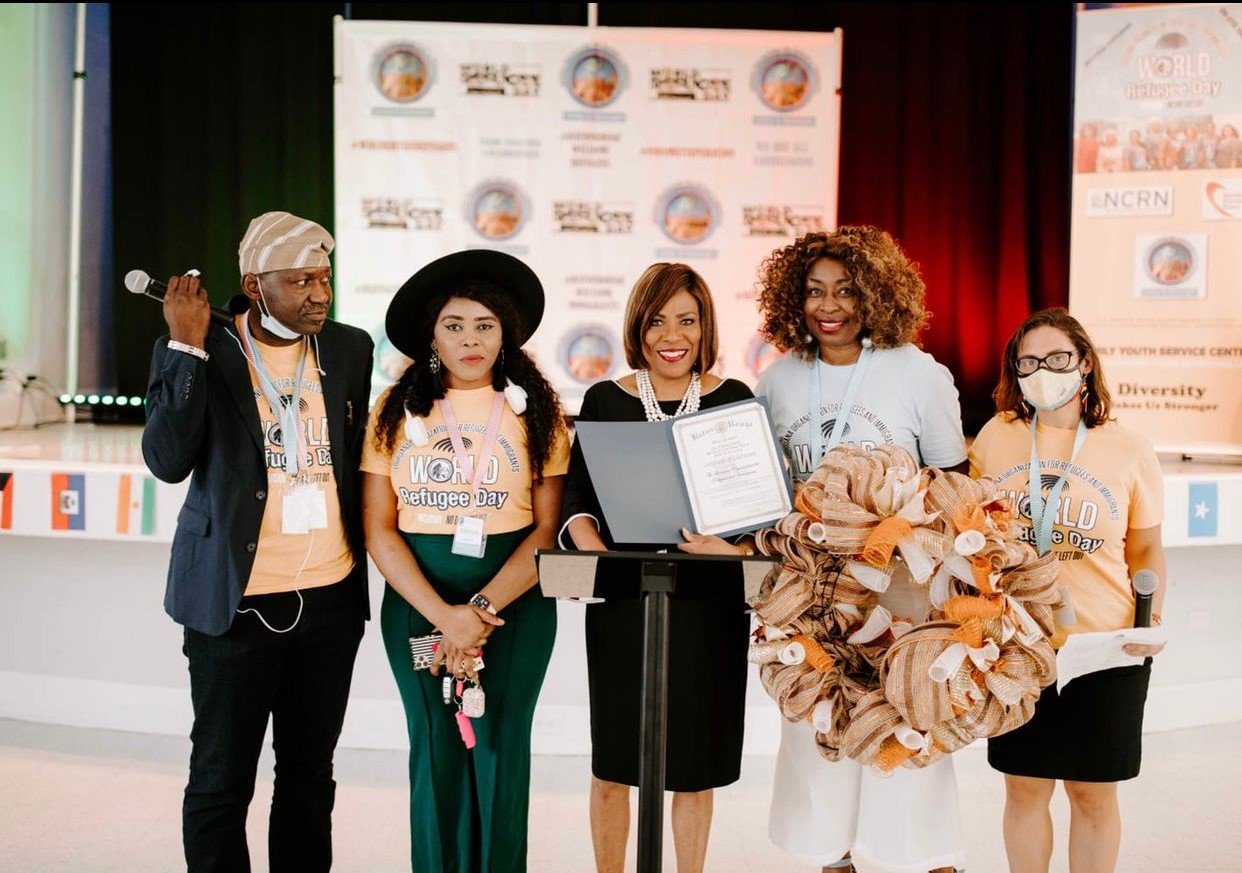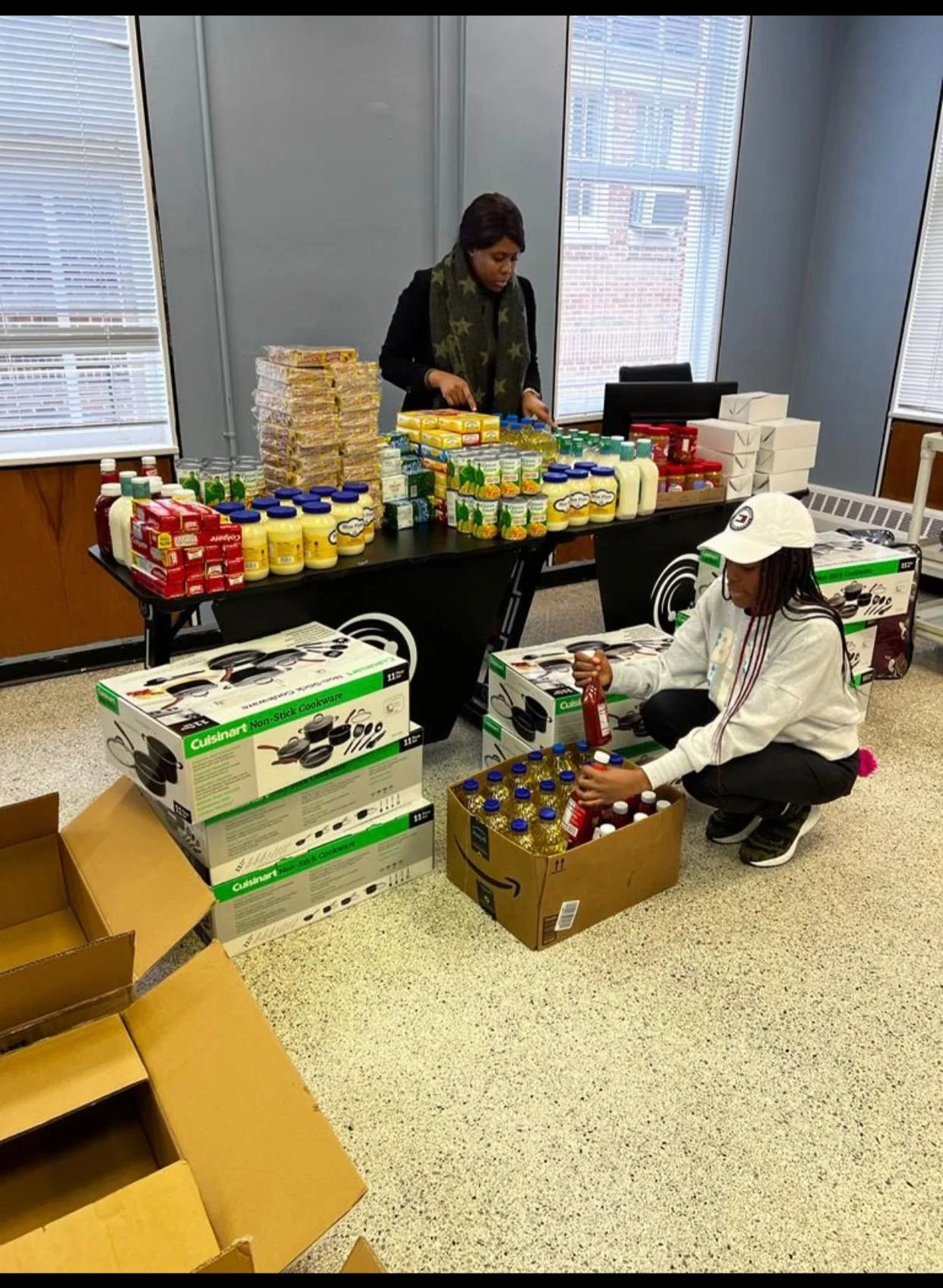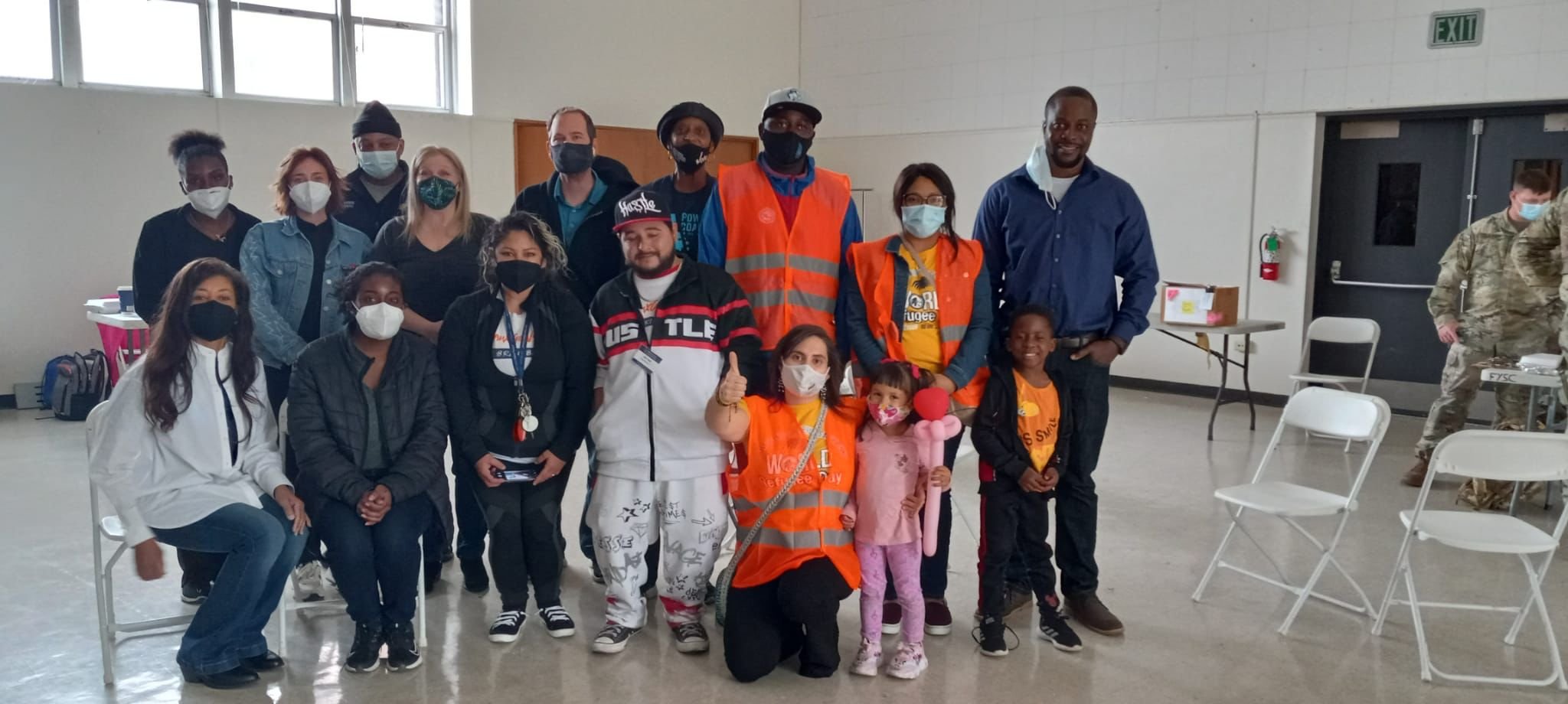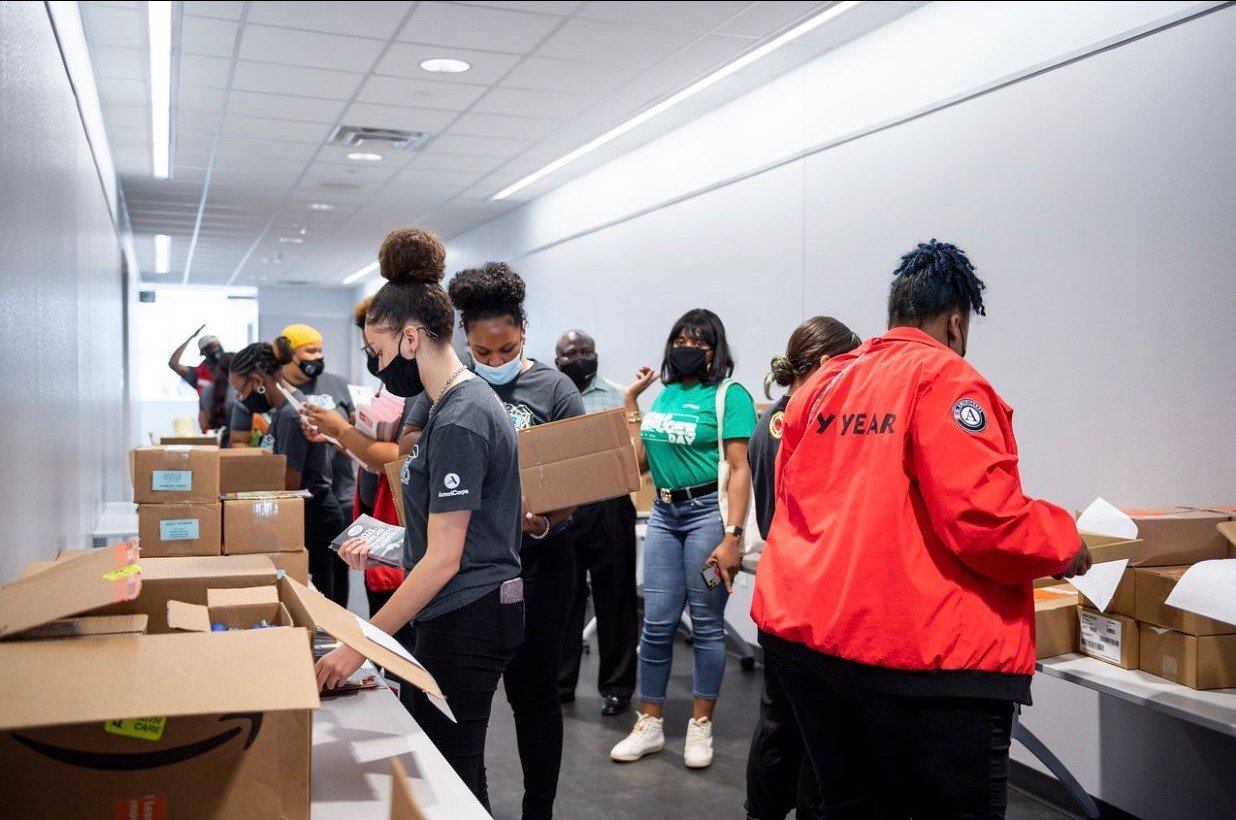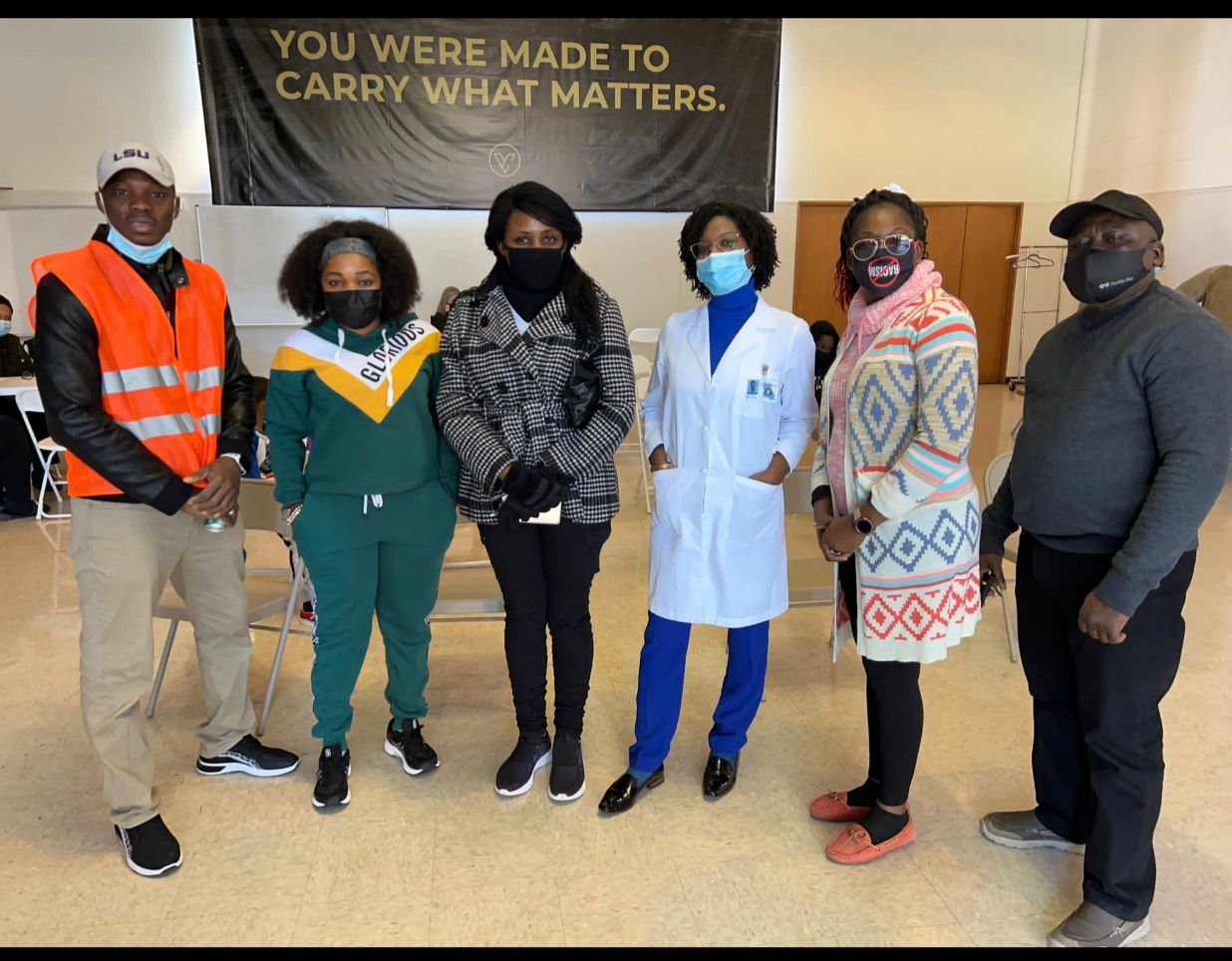Sharon Njie: Changing the Narrative & Helping Community
Sharon Njie: Changing the Narrative & Helping Community
Black History Month Spotlight
Refugee Congress Delegate Sharon Njie seems to rarely have a moment of downtime, but she feels this is exactly as it should be.
“Anybody who knows me would tell you that I’m a workaholic!” she said with a laugh. “I work a lot, but I was born to do this. A lot of people do not have the opportunity to be in the spaces I am in, and being in these spaces, we can really make a difference.”
Sharon came to the U.S. as an asylum-seeker from Cameroon. Today, she lives in Louisiana and balances her time between teaching as an adjunct professor, pursuing her Ph.D. in public policy, and volunteering in her community and beyond.
All of these roles not only give Sharon great joy, but also fulfill her strong motivation to help others and show the world a different picture of what it means to be a refugee or immigrant and to be Black.
“Being a Black woman in America – it defines strength to me,” she said. “It goes beyond where I come from. It goes beyond who I am. The foundation has been created by our forefathers, and we are coming into this space to continue the struggle where they left off.”
Sharon’s teaching role is particularly important to her because it gives her an opportunity to help grow the next generation of Black leaders. She has her MBA and teaches business management and marketing courses at Southern University and A&M College, an HBCU. Every day, she works to give the next generation of Black leaders the tools they need – not just academically, but personally – to fulfill their dreams and build a more equitable and just society.
“I’m a Black woman in America, and I am also an immigrant in America. For me, there is a drive to help my students. I am in the academic realm because I want to impact lives, and I want to make those changes for my students. I tell them they are the change in their environment. They are difference-makers and the leaders of tomorrow. I’m not just teaching them, but I’m also trying to coach them while I teach them,” Sharon said.
Volunteering and advocacy are also key parts of Sharon’s life and ways she works to build a better future. She never envisioned herself getting involved in advocacy, but today she serves as both a Refugee Congress Delegate and the Communications and Strategic Partnership Director for the Louisiana Organization for Refugees and Immigrants (LORI). Both are refugee/immigrant-led organizations and have Black leadership.
“I’m part of advocacy because I feel there is a need for our voices to be heard and for us to create more awareness of the issues that our communities face and we as a people are facing,” said Sharon.
Her involvement started when she contacted LORI for assistance herself several years ago. As she became acquainted with the organization, she quickly saw how it matched her ideals of giving back. Refugee Congress Vice Chair Dauda Sesay was a founding member of LORI and has served as a mentor to Sharon. After she became involved with LORI, he introduced her to the Refugee Congress, and Sharon became lead Delegate when Dauda left his Delegate position to join the Refugee Congress Board of Directors.
“Being in a space like this gives me a sense of purpose,” said Sharon. “The people here come from places like me, and some of them look like me and sound like me. We all have things to give back.”
At both LORI and Refugee Congress, Sharon is committed to changing narratives about what it means to be a refugee or immigrant in America. LORI is a nonprofit organization that assists refugees and immigrants through their stages of integration in the U.S., and Refugee Congress is a nonprofit organization built and led by former refugees, asylum-seekers, and other vulnerable migrants to promote the wellbeing and dignity of all vulnerable migrants. Both organizations also do work to show the reality of the many positive ways that refugees and immigrants are a part of their American communities.
“LORI got started in part as a result of bad publicity and polarizing environments targeting refugee and immigrant communities. Refugees and immigrants were being portrayed as people without value and as a drain on society, but this is not the picture we see. Our fellow refugees and immigrants are community members who are helping each other and building stronger, flourishing communities. We’re changing the narrative of who we are by speaking and telling our own stories, our own truth, and that can actually change the narrative that the media and other bad actors have painted about us,” Sharon said.
As a Black-led organization, LORI plays an important role in creating a space for this kind of change, particularly for Black refugees and immigrants.
“Systemic racism, discrimination, and police brutality are realities,” Sharon said. “We can only keep changing the narrative and keep educating our fellow friends about the narrative they hear in the media. I believe that love solves problems. There is so much hate today. If we can actually see each other – in our eyes – there can be some change in our society. It has to come from within.”
Sharon continues to work each day to build that change in society, never giving up. Through her work with LORI, she recently helped organize and volunteer at a multi-cities event offering COVID vaccinations to residents of Louisiana.
“We did that because there were barriers with respect to the vaccine, and we tried to change that. Some immigrants were fearful to go to other places to get vaccinated because of their documentation status. They were not afraid to come to us because they saw that we looked and sounded like them. We also had American-born people come to get vaccinated. It was an opportunity for everyone,” Sharon said.
Always working to change the narrative, Sharon also pointed out that this was a great example of the value that refugees and immigrants bring to their communities. Both LORI and Refugee Congress are volunteer organizations, and refugees and immigrants put in many volunteer hours to help others through these organizations.
At the recent COVID vaccination event organized by LORI, there were more than 53 volunteers across the state who each put in 6 or more volunteer hours.
“They committed more than 300 hours in just a single day to give back to the community!” Sharon said. “Would you still say that we are people who do not have value? Would the media still talk about us as if we do not add value? We are working to break barriers and help people in Louisiana. It’s about helping the community. We all do better together.”
Refugee Congress is a nonpartisan advocacy organization built and led by former refugees, asylum-seekers and other vulnerable migrants to promote the well-being, integration and dignity of all vulnerable migrants. With delegates across all 50 states and the District of Columbia, we use our voices and experiences to inform and influence decision-makers on critical domestic and international issues that affect our communities.
MEDIA CONTACT: (202) 905-6238, media@refugeecongress.org


